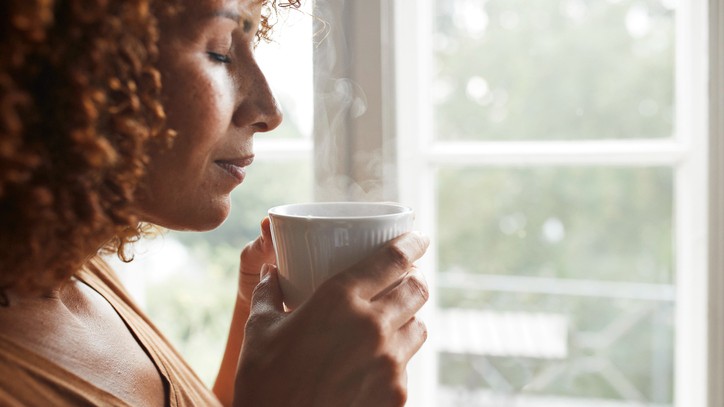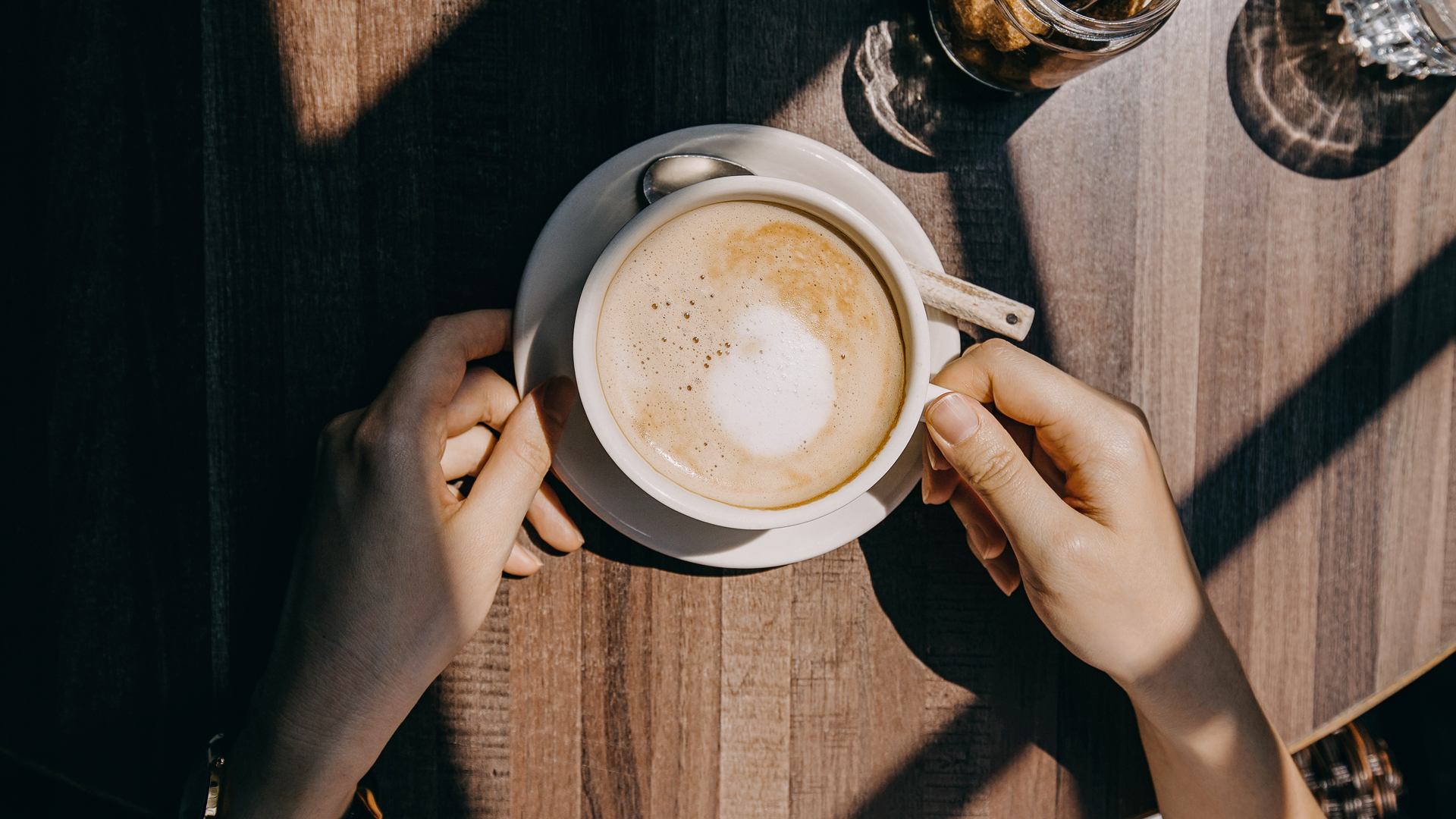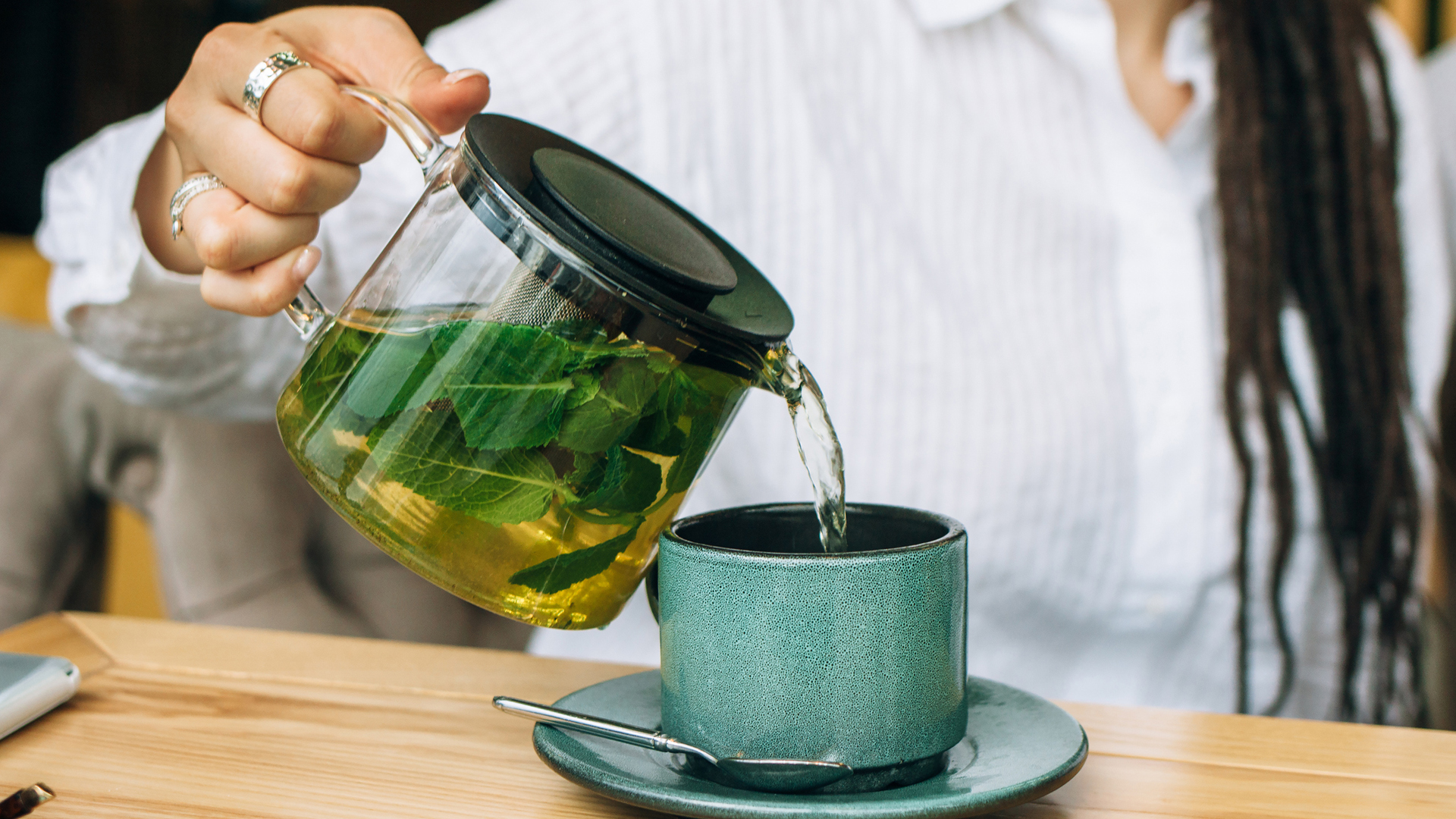Signs you might have a caffeine sensitivity – and what to drink instead
Everything you need to know about caffeine sensitivity and how differs from a caffeine allergy

Get the world’s most fascinating discoveries delivered straight to your inbox.
You are now subscribed
Your newsletter sign-up was successful
Want to add more newsletters?
Join the club
Get full access to premium articles, exclusive features and a growing list of member rewards.
More than 50% of American adults drink coffee every day, meaning that at least half of us rely on caffeine to give us our daily boost. However, although caffeine consumption is high, many people also struggle with caffeine sensitivity, which manifests in symptoms such as heart palpitations and jitters, which can be concerning to experience.
If you have experienced these symptoms, you may think you have a caffeine allergy, but this condition is actually surprisingly uncommon. If you are reacting to caffeine, it is more likely that you are experiencing symptoms due to the increase in the hormone adrenaline that caffeine causes in our bodies. We’ll explore the difference between caffeine sensitivity and caffeine allergy, and give you an idea of the symptoms you may experience with caffeine sensitivity. We’ve also spoken to the experts to find some low caffeine or caffeine free alternatives to your daily cup of joe.
Caffeine sensitivity vs caffeine allergy: what’s the difference?
Those with a caffeine sensitivity are generally reacting badly to the adrenaline response that caffeine causes, whereas those with a caffeine allergy are having a histamine response to the caffeine itself. A study in the Asia Pacific Allergy journal indicated that anaphylaxis due to caffeine allergy is very rare, with most cases involving another, secondary trigger such as aspirin. Only one case in Spain is referenced as being caused by caffeine alone.
Dr Ross Perry, GP and medical director of Cosmedics, explains: “Most of us are all too aware of the buzz we get shortly after consuming caffeine – some feel more awake, others have a burst of energy and others feel a little bit shaky. This tends to happen around 20 minutes after drinking something containing caffeine,” he says. “If you’re someone who feels a little bit shaky or perhaps finds themselves needing the loo shortly after, it could be you’re intolerant or sensitive.”
So what’s the difference? According to Perry, there’s not a huge amount in it. “For some it could be you’ve simply had too much caffeine and the body is overloaded so you need to cut back,” he says. “For others, the smallest amount can make you feel a little bit shaky, upset your tummy, give you a headache, insomnia, palpitations and increased anxiety. If this is the case then it’s likely you're intolerant. Quite often this is down to an individual's metabolism – a faster metabolism means that you’re not as likely to have sensitivity to caffeine, unless you go overboard, and someone with a slow metabolism will be more easily affected.”
- Related: Man dies of caffeine overdose
- Related: Does coffee really stunt kids' growth

Jenaed Brodell, Dietitian at Nutrition and Co, working with Pro Plus says, “Caffeine sensitivity can be caused by a variety of factors, such as gender, age and weight as well as an individual’s genetic variation in brain chemistry and liver metabolism.
“Often symptoms are experienced due to metabolizing caffeine slower than normal, leading to caffeine remaining in the system for longer. Those with caffeine sensitivity may be able to tolerate small amounts of caffeine, depending on their individual capacity to metabolize caffeine, however, those with caffeine allergy will likely react to even a small amount of coffee. Since people with caffeine sensitivity metabolize caffeine more slowly, their symptoms may last for several hours.”
Get the world’s most fascinating discoveries delivered straight to your inbox.
A review in the journal of General Hospital Psychiatry indicates that caffeine can exacerbate symptoms of anxiety and panic disorders, with 51.1% of participants in one study having a panic attack after consuming caffeine, but not when they took a placebo. Although you may not have a specific sensitivity to caffeine, if you have a history of anxiety disorders, you may want to avoid consuming it if possible.
What are the symptoms of caffeine sensitivity or intolerance?
Symptoms of caffeine sensitivity include:
- Heart palpitations
- Headache
- Anxiety
- Restlessness
- Insomnia
- ‘Jitters’ or ‘shakes’
- Irritability
- Bathroom urgency
Brodell adds: “Caffeine sensitivity can manifest as a racing heartbeat, headaches, nausea, anxiousness, and difficulty sleeping. The extent of symptoms may vary depending on the level of sensitivity an individual experiences as well as the amount of caffeine consumed. The symptoms associated with caffeine allergy are slightly more severe in that a person can develop itchy skin, rash and increased irritability and shakiness.”
Caffeine alternatives: What to drink instead
Instead of caffeine, Dr Perry tells us to drink more water. “The best thing you can drink for your body is water, but for a lot of us we find we need something more to kick start the day, and caffeine like a lot of things is a habit and not a good one. Hot water and lemon is a good substitute, peppermint tea, fresh fruit and veg smoothies, plain soda water with a squeeze of lime, matcha or red tea, and coconut water are all good choices.”
If you are a big tea drinker, you can also try low caffeine alternatives to black tea, such as white tea, which only contains 6-55 mg of caffeine per 250ml cup, in comparison to green tea, which comes in at 30-70 mg and black tea, which has 47-90 mg. White tea is tea that has been picked earlier in its development than green or black tea; generally the more mature the leaf and the more it is processed, the higher the caffeine content. You can also opt for fruit teas or herbal teas like chamomile or peppermint, which are naturally caffeine free.

Brodell tells us that controlling the amount of caffeine we consume might help. “Typically, the concentration of caffeine varies depending on the source,” she says. “For example, a cup of coffee may contain anywhere between 100 and 200 mg of caffeine per serving, making it harder to monitor your daily consumption. As a result, people may wish to switch from coffee to an alternative high-quality source of caffeine, such as that found in a caffeine tablet. While both may be favored for different situations, high-quality caffeine tablets can be safer than consuming coffee regularly.
“This is mainly because you can precisely measure the dose of caffeine that you are consuming, removing the risk of caffeine overstimulation. By controlling your caffeine consumption, you can safely eliminate the side effects often experienced from drinking coffee, such as jitters, fatigue, and nervousness.”
You could also always try decaf coffee if you can't live without that coffee flavor.
This article is for informational purposes only and is not meant to offer medical advice.

Lou Mudge is a health writer based in Bath, United Kingdom for Future PLC. She holds an undergraduate degree in creative writing from Bath Spa University, and her work has appeared in Live Science, Tom's Guide, Fit & Well, Coach, T3, and Tech Radar, among others. She regularly writes about health and fitness-related topics such as air quality, gut health, diet and nutrition and the impacts these things have on our lives.
She has worked for the University of Bath on a chemistry research project and produced a short book in collaboration with the department of education at Bath Spa University.
 Live Science Plus
Live Science Plus










